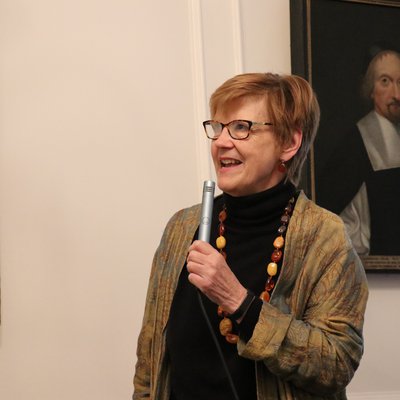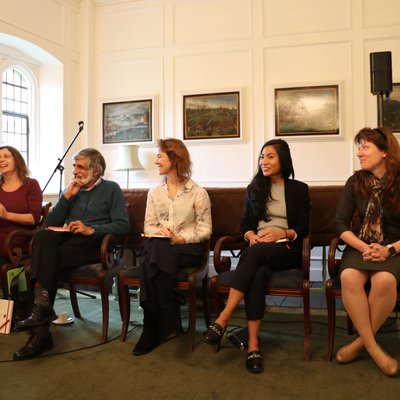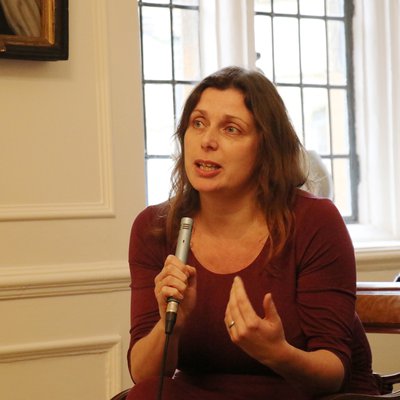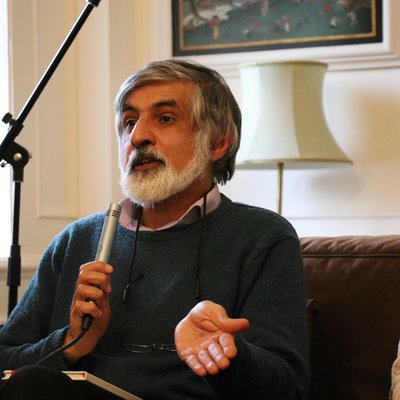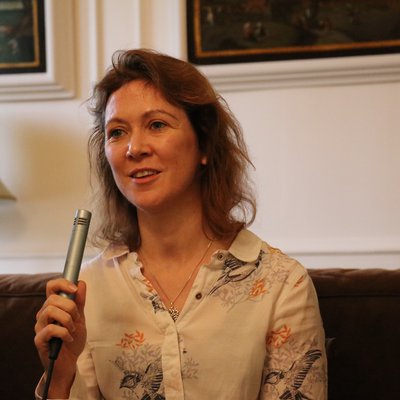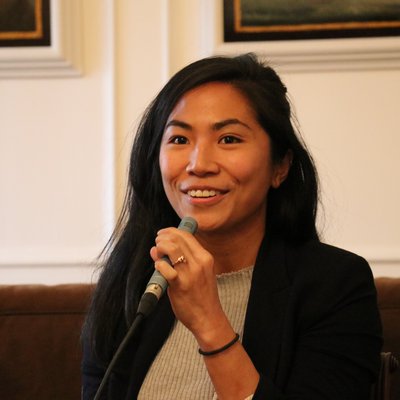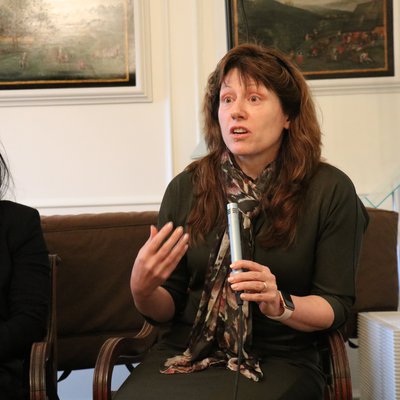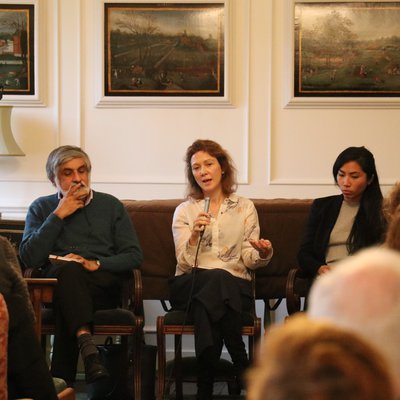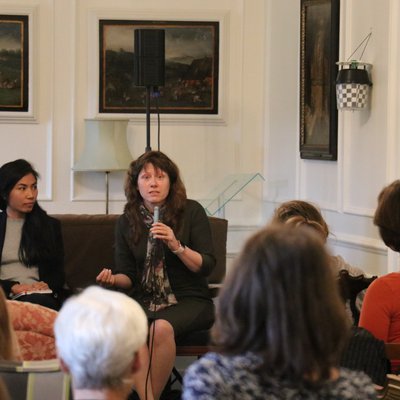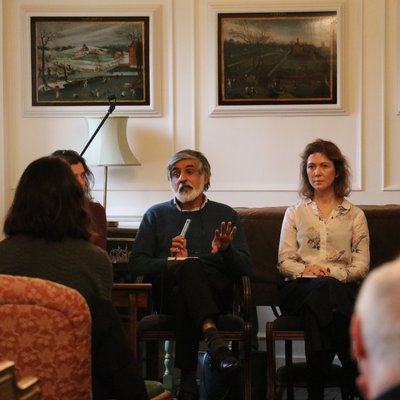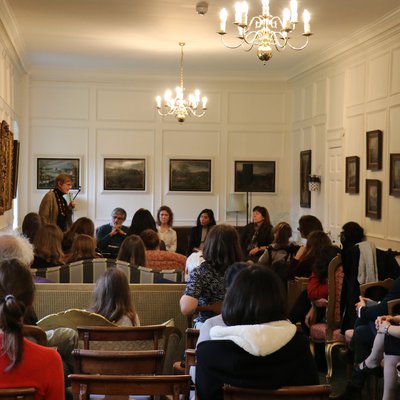40 Years of Women: Women in Science
‘Women in Science: Lessons from Experience’ brought together a panel of St John’s academics, from a wide variety of different scientific fields and at various stages in their careers, who spoke about their own experiences, gave advice on how to deal with difficult situations, and answered audience questions on a range of subjects relating to equality and diversity.
The Long Gallery was full of students and staff members from across the University, from undergraduates potentially at the beginning of a career in scientific research, to Fellows who provided examples and advice from throughout their own careers.
Chaired by Professor Dorothy Bishop, Supernumerary Fellow in Developmental Neuropsychology, the panel comprised:
Dr Hannah Alfonsa – Junior Research Fellow in Pharmacology
Professor Katherine Blundell – Supernumerary Fellow in Astrophysics
Professor Philip Maini – Professorial Fellow in Mathematical Biology
Professor Angela Russell – Bernard Taylor Fellow in Chemistry
Professor Rebeccah Slater – Professorial Fellow in Neuroscience
Following an introduction to the event by Dr Kate Doornik, Supernumerary Fellow in Economics, each panellist introduced themselves and gave the audience an insight into their research and their careers so far, and their experiences as a minority in their field. It was interesting to hear about the similarities and differences in the experiences of each panel member, and the issues that they had faced in getting to where they are today.
The panel then responded to questions submitted by the audience, on a diverse range of subjects including ways of making interviews fairer, how to make sure that toxic colleagues do not affect your confidence, methods of gaining more support from male peers, ways of attracting more women to academic positions, and how to encourage more men to see the benefits of shared parental leave.
There was a lively discussion in relation to each of the points raised through the questions, and the members of the panel provided plenty of words of advice and encouragement to the audience, including:
- Have the confidence to be yourself rather than what people expect of you – and do not try to be like the people you fear.
- Have a life outside of work, which will also provide you with an outlet from toxic situations.
- If you are in a position of authority, make sure that it is easy for people to come and talk to you about concerns, and ensure that you acknowledge that issues are legitimate.
- Surround yourself with people who will support you.
- Empower others, such as through mentoring people at an earlier stage in their career.
We are grateful to all of our panellists for providing such thoughtful and considered answers to the questions posed by our audience, and for giving such honest accounts of their own experiences. We are sure that their advice and ‘lessons from experience’ will provoke further discussion that will be of benefit to many other scientists throughout their careers.
